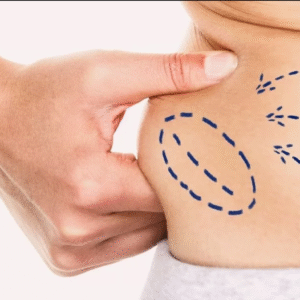Modern life is often rapid rivers, steady on the surface, but filled with unnoticed currents under. Many people are stressed, struggling to handle stress from relationships, work and the daily demands. In these times, routines focused on mental clarity and emotional resilience become crucial. Strategies that aid in stress reduction in Philadelphia can help people create an environment that is quiet that allows for the body and mind to relax as well as the body re-calibrate.
Understanding the Body-Mind Stress Loop
Stress isn’t just an emotion, it is a complete body reaction. If the nervous system is aware of overloaded, it sets off a series of reactions that include muscle tightening, shallow breathing, an increased the heart rate and disturbed focus. This cycle can become habitual if not controlled, causing calm to seem far away. Through learning to break this cycle with breathing, mindfulness and techniques for grounding people can gain control of the internal rhythm of their lives. Stress management becomes a practice of awareness–recognizing when the system is escalating and choosing to intervene with intentional calm.
How Awareness Reshapes Emotional Regulation
Awareness is the ability to be quiet which alters how people respond to stress. Instead of reacted impulsively the individuals are taught to look at emotions when they show. This one simple change can alter everything. If one is aware of the jaw becoming tighter or a pulse of rapid acceleration it is possible to intervene early. The guided breathing, micro-pauses and sensory grounding aid in slowing the brain’s internal acceleration. As time passes, the emotional control improves and triggers shed some of their vigor. These methods don’t remove all challenges that come up, but they can increase the capacity of a person to face these challenges with confidence.

The Science of Breath and Nervous System Reset
Breathing is one of the most effective tools to relax our nervous system. Breathing slowly and exhaling for a long time trigger the parasympathetic response, often referred to as body’s naturally “rest and restore” mode. This decreases heart rate and eases tension. Regular breathing can even alter long-term stress patterns and gradually instructing the brain to respond different to stress. Techniques like diaphragmatic breathing, box breathing and rhythmic breath cycles are commonly used to increase stability and clarity.
Mindfulness as a Daily Anchor
Mindfulness goes beyond meditation. It can be described as the practice of remaining focused and unaffected. Even only a few minutes every day allows people to stop their racing thoughts and regain a sense of groundedness. Focusing on mindfulness improves focus, aids in better sleep and reduces emotional reactions. Simple rituals such as slow walking with a mindful attitude, taking a pause between tasks as well as paying attention sensory aspects can reduce the level of stress. Through repetition, mindfulness can become an anchor, something that is reliable even in times of uncertainty.
Midpoint of Emotional Renewal
At the halfway point of a personal transformation, people tend to notice subtle but significant shifts. This is the point at which stress reduction in Philadelphia is no longer a method rather than an internal change. People are able to respond to conflict with more tolerance, making better choices, and stopping for breaks when overwhelm begins to build. The new habits are absorbed within the brain as new grooves that replace previous patterns of stress and exhaustion. This change is not only improved wellbeing and a growing connection with self-awareness.
Building Consistency Through Micro-Practices
Lifestyle changes that have a large impact are usually hard to sustain, however small changes can be sustainable. Micro-practices–two-minute breathing sessions, short reflection breaks, posture resets, or digital boundaries–create lasting impact. These simple rituals can interrupt routine stress reactions and give the nervous system numerous occasions to unwind. As time passes, consistent small-scale exercises build endurance, similar to exercises that are short and daily in nature build muscles. It’s not about the perfect, but rather being present.
Sleep Hygiene and Mental Clarity
Sleep is the brain’s repair chamber, clearing the mind of fog and managing the processing of emotions. Stress affects the quality of sleep, while inadequate sleep can increase stress levels, which most people do not realize they are repeating. The importance of establishing a regular sleep routine through routines, night-time rituals and limiting screen exposure prior to bedtime can result in substantial improvements in the clarity of your mind and mood. Sleeping in can help regulate your emotions which makes daytime stress less difficult to manage.
Nutrition and the Mind-Body Balance
What we eat influences our mood and how we feel. Foods high of antioxidants, healthy fats and calming minerals may help improve brain function and lessen the body’s physiological reaction to stress. Drinking water and eating a balanced diet can reduce the spikes in blood sugar that can mimic symptoms of anxiety. Although nutrition is often ignored however, it plays a vital function in establishing a healthy mental and emotional environment. Nutritional nourishment is an integral part of the process of nourishing your mind.
Movement as a Release Valve
Physical activity is among the most effective ways to combat stress. It increases endorphins, boosts circulation, and eases the tension in muscles. Through yoga and stretching, walking dance, or a the structured exercise, it shifts stagnant energy into flowing. It is common for people to notice that the weight of their emotions decreases after they exercise their bodies. It also helps to restore mental clarity. Moving doesn’t have to be intense, it only requires that it be deliberate.
Digital Boundaries for Mental Peace
The constant stream of notifications, messages and electronic noises overstimulate the brain. Setting boundaries–scheduled quiet hours, reduced multitasking, or designated tech-free spaces–helps the nervous system settle. These pauses in digital technology act as breathing to the brain allowing it the opportunity to rest and reset. A lot of people have found that reducing the amount of digital stimulation improves concentration, creativity, and emotional stability.
Social Support and Emotional Connection
Humans are wired to connect and relationships that are meaningful act like emotional cushion. Being able to share your feelings with friends who are supportive and practicing authentic communication as well as spending time with your loved ones provides emotional venting, which relieves internal stress. Social connections help to reduce stress by reminding people that they are not facing problems on their own.
Nature’s Quiet Influence on Mental Calm
Nature’s natural environments possess an inherent capacity to relax the mind. A brief encounter with nature – walking out in the sunshine, looking at the sun’s rays or listening to nature sounds can reduce cortisol levels. Nature offers quiet, and an opportunity to unwind from the mental chaos. It helps people reconnect to their breathing, the senses and their the rhythm of their own inner life.
Cultivating Long-Term Emotional Resilience
Resilience is built through consistent practicing with compassion. Each technique to calm, each option to take a breath, every moment of mindfulness builds the emotional foundation. As time passes, people develop the ability to deal with stress without feeling overwhelmed. Resilience doesn’t mean just the absence of stress but the ability to deal with it with confidence and clarity.
Conclusion
Stress is an integral an element of our lives But how we react to it will determine its impact. Through deliberate actions, mindfulness and consistent grounding routines people can make an environment that promotes balance and clarity. The techniques that support the reduction of stress in Philadelphia provide effective methods to manage your nervous system. They can also help release the tightening of the mind, and foster an emotional health that lasts for a long time. With perseverance and understanding the calmness of mind is no longer a short-term escape, and becomes more of a constant state, a tranquil sub-current that guides the mind through the ever-changing waters of life.




